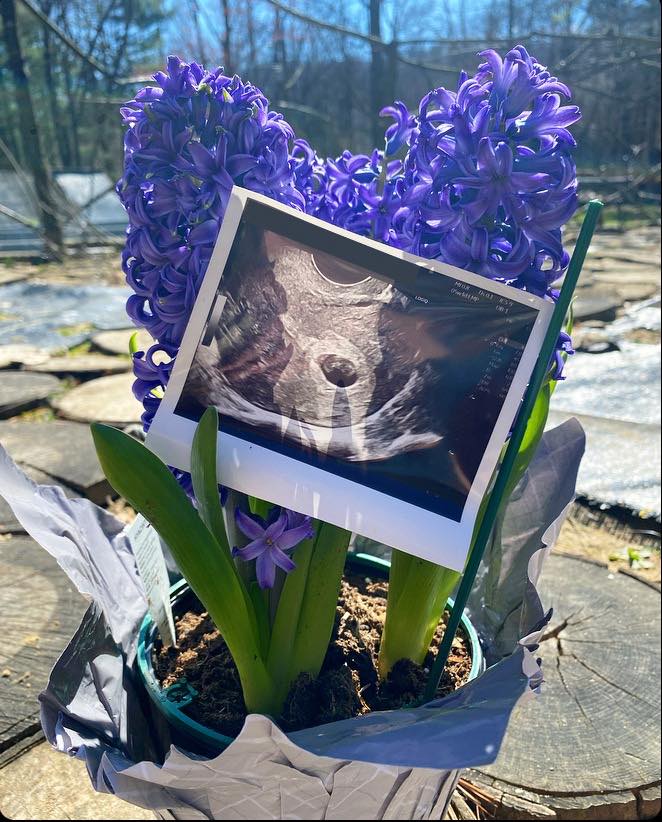One year ago, I experienced a heartbreak that shattered my world—my miscarriage. The pain, the emptiness, and the deep ache in my soul were unlike anything I had ever known. As I reflect on the journey I’ve walked over the past 12 months, the grief still lingers in unexpected ways. But even in my sorrow, I’ve seen God’s faithfulness in ways I could never have imagined. Today, as I sit here at 36 weeks pregnant with our rainbow baby, I’m filled with gratitude and awe for the healing that only He could bring. The road hasn’t been easy, and the scars are still there, but I’ve learned that God’s love and grace have the power to restore even the deepest wounds. This is my story of heartbreak, healing, and the hope that comes from trusting in God’s perfect timing.
Trusting God to Heal Your Brokenness
Grief is one of life’s most profound and painful experiences. Whether it’s the loss of a loved one, the end of a relationship, or a deep personal disappointment, the heartache that accompanies loss can leave us feeling empty, broken, and overwhelmed. In these moments of sorrow, it’s easy to feel as if our world is falling apart and that we’ll never be whole again. But as Christians, we hold onto a profound hope that God can heal our brokenness and guide us through our pain, leading us to a place of restoration and peace.
In this blog, we’ll explore how the stages of grief align with biblical principles and how, through faith and trust in God’s timing, we can begin to move forward and let Him heal us.
Understanding Grief
Grief is not a linear process. It’s a journey that often takes unexpected twists and turns. Psychologists typically identify five stages of grief: denial, anger, bargaining, depression, and acceptance. These stages, while not always experienced in a specific order, help us understand the emotional landscape we may walk through as we grieve.
The Bible doesn’t mention these stages specifically, but it offers us comfort and guidance through every stage of grief. Let’s explore how the Scriptures speak into each of these stages.
1. Denial: Facing the Reality of Loss
The first stage of grief is often denial. It’s the feeling that “this can’t be happening” or “I can’t believe they’re gone.” In moments of deep sorrow, we sometimes try to protect ourselves from the overwhelming pain by refusing to acknowledge the full extent of our loss.
The Bible speaks to us in this moment of denial, offering words of comfort and reality. Jesus, in His own grief over the death of Lazarus, wept. In John 11:35, we read, “Yeshua/Jesus wept.” His sorrow over the death of His friend reveals that grief is a natural and human experience—one that even our Savior experienced.
In our own denial, we can bring our honest feelings to God. Psalm 34:18 reminds us, “The Lord is close to the brokenhearted and saves those who are crushed in spirit.” God does not condemn us for our pain but draws near to us in it.
2. Anger: Giving God Our Hurt
Anger often accompanies grief, especially when the loss feels unfair or when we’re overwhelmed by the deep ache in our hearts. We might ask, “Why did this happen? Why me? Why now?” Anger can rise up as we wrestle with the questions that grief brings.
In these moments, it’s important to remember that God is big enough to handle our anger. King David, known for his deep relationship with God, often poured out his anger and frustration to God in the Psalms. In Psalm 13, David cries out, “How long, Lord? Will you forget me forever? How long will you hide your face from me?” (Psalm 13:1).
God welcomes our honesty. He doesn’t shy away from our feelings of anger. But He also wants us to trust Him with our pain. Romans 12:19 reminds us, “Do not take revenge, my dear friends, but leave room for God’s wrath, for it is written: ‘It is mine to avenge; I will repay,’ says the Lord.” In our anger, we can trust that God will bring justice and healing in His perfect way and time.
3. Bargaining: Surrendering Control to God
During grief, we may find ourselves bargaining with God, asking if there is anything we can do to reverse the situation. We might plead, “If only I had done this differently” or “God, if You bring them back, I promise I will do this.” In these moments, we seek to regain control over our situation and the painful reality we face.
However, in this bargaining stage, God calls us to surrender control. He reminds us that He is sovereign, and His ways are higher than ours. Isaiah 55:8-9 says, “‘For my thoughts are not your thoughts, neither are your ways my ways,’ declares the Lord. ‘As the heavens are higher than the earth, so are my ways higher than your ways and my thoughts than your thoughts.’”
True healing comes when we let go of the need to control and trust God with our brokenness. He is not only able to heal but also to bring purpose to our pain, even when we don’t understand the full picture.
4. Depression: Finding Comfort in God’s Presence
Depression often follows in the wake of grief, leaving us feeling like we’re walking through a dark tunnel with no way out. In this stage, the weight of sadness and despair can feel suffocating.
The Bible acknowledges that depression and despair are real struggles, but it also offers hope. Psalm 42:11 says, “Why, my soul, are you downcast? Why so disturbed within me? Put your hope in God, for I will yet praise him, my Savior and my God.” Even in the depths of despair, God’s presence can bring comfort and strength. He meets us in our sorrow and offers peace that transcends our understanding.
Jesus offers us rest in our burdens. In Matthew 11:28, He invites us, saying, “Come to me, all you who are weary and burdened, and I will give you rest.” We are never alone in our grief—God is with us, offering healing for our brokenness.
5. Acceptance: Trusting God’s Healing and Moving Forward
The final stage of grief is acceptance—not of the loss itself, but of the reality that life continues, and God is faithful. Acceptance doesn’t mean we stop grieving, but it does mean we begin to allow God to heal our hearts and move us forward.
One of the most beautiful promises in Scripture comes from Isaiah 61:3, which speaks of God’s healing power: “To provide for those who grieve… to bestow on them a crown of beauty instead of ashes, the oil of joy instead of mourning, and a garment of praise instead of a spirit of despair.” This verse reminds us that God’s restoration is not just a return to normal but a transformation into something more beautiful than before.
Though the pain may never fully vanish, acceptance is the process of releasing our grip on the past and trusting that God has a future for us. It’s in surrendering to God’s healing that we find true peace.
Letting Go and Moving Forward
Grief is a journey, but it is not one that we walk alone. As we grieve, we must remember that God is present in every stage, offering comfort, strength, and healing. He promises to heal our brokenness (Psalm 147:3) and to bring joy out of mourning.
As we let go of our pain and trust in God’s plan, we open ourselves up to His healing. Moving forward doesn’t mean forgetting the past; it means embracing the future with the hope that God is with us, transforming our pain into something new.
In the end, healing comes when we let God take our brokenness and turn it into something beautiful. Grief is not the end of the story but part of the journey that leads to a deeper relationship with God and a fuller understanding of His love for us.
May you find comfort in the truth that, in the midst of your grief, God is with you. He will heal your brokenness, and He will lead you forward, step by step, into the fullness of His peace and love.
Prayer for Healing:
Heavenly Father, we come before You with heavy hearts, grieving the loss we’ve experienced. We ask You to comfort us in our pain and remind us that You are near to the brokenhearted. Help us to trust You with our grief, to let go of control, and to surrender our hurts into Your hands. Heal our brokenness, Lord, and restore us with Your love and grace. In Jesus’ name, Amen.

“He heals the brokenhearted and binds up their wounds.” – Psalm 147:3

Leave a Reply